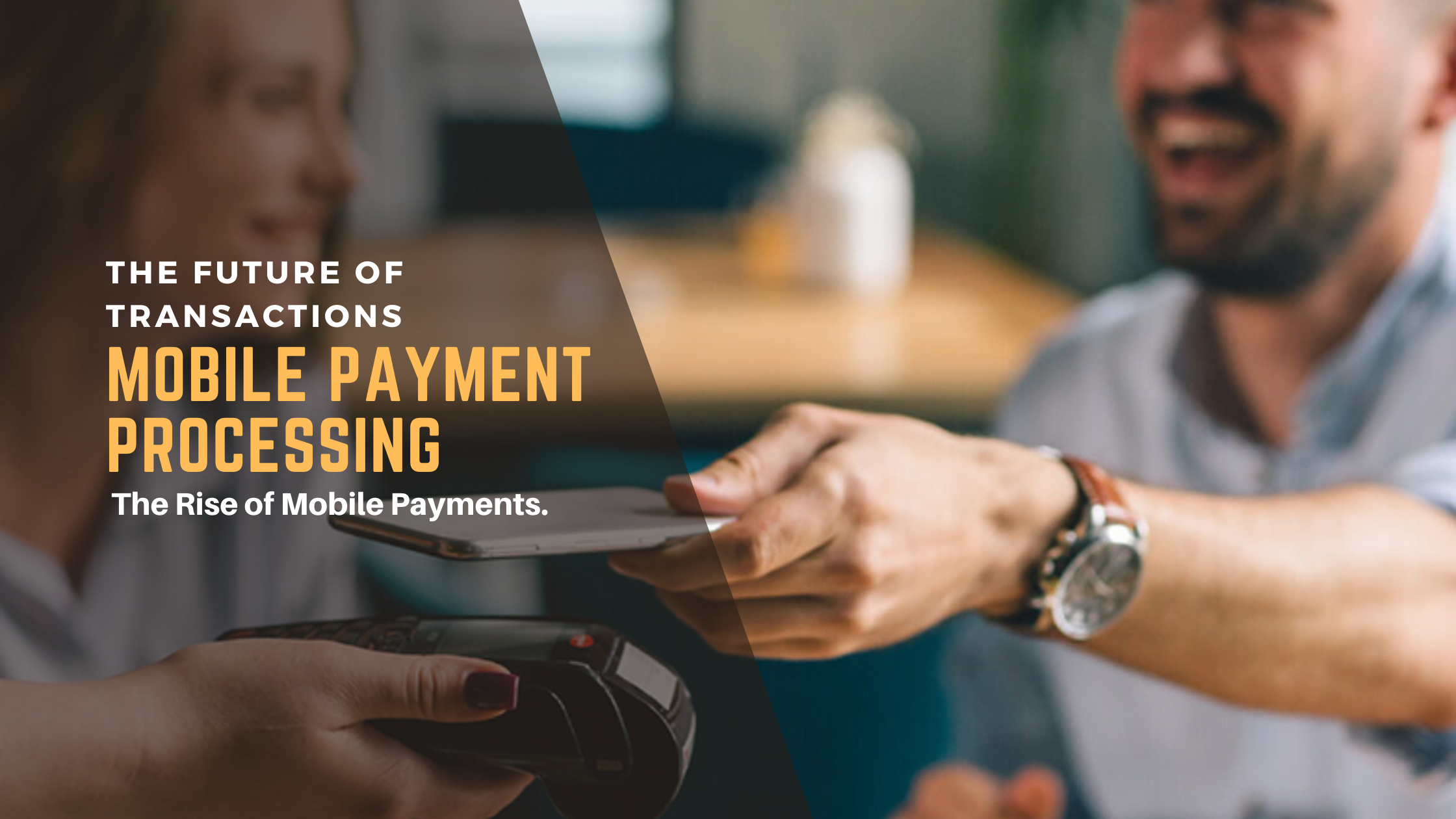
Mobile Payment Processing: The Future of Transactions
In an increasingly digital world, mobile payment processing is revolutionizing how we conduct transactions. With the rise of smartphones and mobile apps, paying with a mobile device has become more convenient, secure, and efficient than ever before. In this blog, we explore why mobile payment processing is the future of transactions and how businesses can benefit from this innovative technology.
What is Mobile Payment Processing?
Mobile payment processing refers to the use of mobile devices, such as smartphones and tablets, to make and receive payments. This technology enables consumers to complete transactions without the need for cash or physical credit cards, using apps like Apple Pay, Google Pay, and Samsung Pay. Mobile payments can be made through various methods, including:
- Contactless Payments: Using Near Field Communication (NFC) technology to tap and pay.
- Mobile Wallets: Storing credit card information securely on a mobile device.
- QR Codes: Scanning a QR code to initiate a payment.
The Rise of Mobile Payments
The adoption of mobile payment processing has been driven by several factors:
- Convenience: Mobile payments are fast and easy, allowing customers to complete transactions with just a few taps on their smartphones.
- Security: Advanced encryption and tokenization technologies make mobile payments more secure than traditional methods.
- Global Reach: Mobile payments can be made from anywhere in the world, breaking down geographical barriers.
- COVID-19 Impact: The pandemic accelerated the shift towards contactless payments, with many consumers preferring mobile payments to reduce physical contact.
Benefits for Businesses
1. Increased Sales
Mobile payment processing offers a seamless checkout experience, reducing friction and making it easier for customers to complete their purchases. This convenience can lead to increased sales and higher customer satisfaction.
2. Enhanced Security
Mobile payments use advanced security features such as biometric authentication (fingerprint or facial recognition), encryption, and tokenization. These measures significantly reduce the risk of fraud and chargebacks, protecting both businesses and customers.
3. Cost Savings
By reducing the need for physical payment terminals and cash handling, businesses can save on operational costs. Mobile payments also streamline the transaction process, reducing the time and resources needed for payment processing.
4. Customer Insights
Mobile payment platforms often provide valuable data and analytics, allowing businesses to gain insights into customer behavior and preferences. This information can be used to tailor marketing strategies and improve the overall customer experience.
5. Global Accessibility
With mobile payment processing, businesses can easily accept payments from customers worldwide. This opens up new markets and opportunities for growth, especially for e-commerce businesses.
Implementing Mobile Payment Processing
To start accepting mobile payments, businesses need to:
- Choose a Payment Processor: Select a reputable payment processor that supports mobile payments. Look for features such as security, ease of integration, and customer support.
- Integrate Mobile Payment Solutions: Integrate mobile payment options into your existing payment infrastructure. This may involve updating your point-of-sale (POS) systems and website payment gateways.
- Educate Staff and Customers: Ensure your staff is trained on how to process mobile payments and educate your customers about the new payment options available.
- Promote Mobile Payments: Highlight the convenience and security of mobile payments in your marketing efforts to encourage adoption.
The Future of Mobile Payments
The future of transactions is undoubtedly mobile. As technology continues to advance, we can expect to see even more innovative mobile payment solutions. From wearable devices and voice-activated payments to blockchain-based systems, the possibilities are endless. Businesses that embrace mobile payment processing today will be well-positioned to thrive in the evolving digital economy.
Conclusion
Mobile payment processing is transforming the way we conduct transactions, offering unparalleled convenience, security, and efficiency. By adopting mobile payment solutions, businesses can enhance the customer experience, increase sales, and stay ahead of the competition. At Merchant Connect, we provide cutting-edge mobile payment processing solutions tailored to meet the needs of businesses in the UK and Europe. Contact us today to learn how we can help you embrace the future of transactions.
We’ll Help You Start Accepting Payments
Contact us today to learn more about how we can meet all your payment processing needs.
